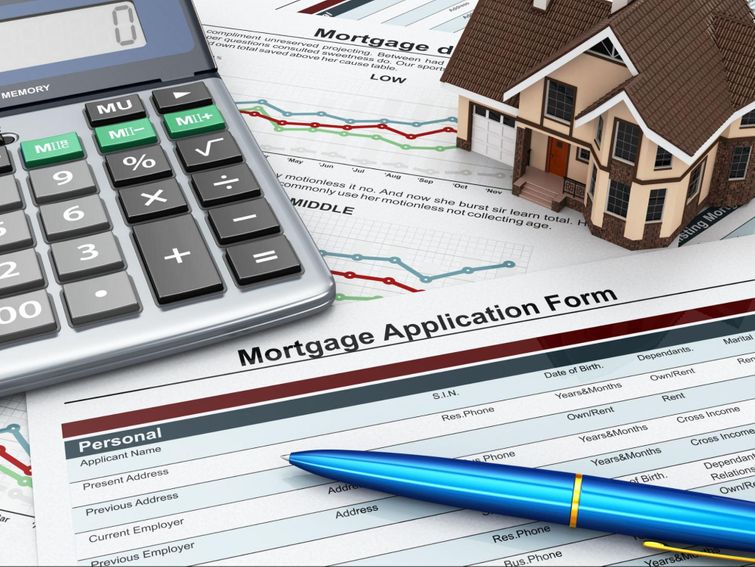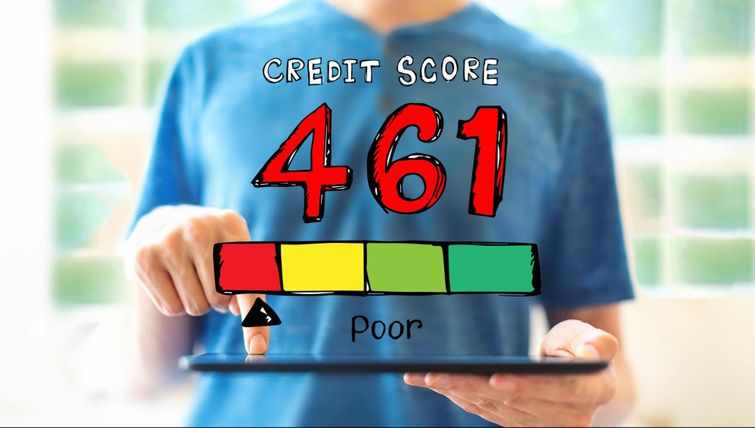If you are looking to get a , you may find that a poor credit score presents a major barrier in your search. A credit score is something that a lot of people don’t fully understand and can cause a lot of frustration. There are also many subtle things that may damage your credit score that you may not be aware of and may not notice until you go to get a loan. By then, it’s too late.
There are options, however, for those looking to secure mortgage loans with bad credit. In this article, we will explore some ideas of how to get a mortgage with bad credit.
Can I buy a house in Canada with bad credit?
Your credit score is pretty important, but it isn’t the end of the world. Things will be much easier if you have a fair or good credit score when it comes time to buy a house, but it’s certainly still possible to buy with a poor credit score. The only catch is, you will need to do more work to find a decent mortgage option and you can end up paying a lot more.
Consider if a bad credit mortgage is right for you
If you have bad credit and want to buy a house, you should take a serious look at your finances first. Consider why you have bad credit in the first place. If your bad credit score is a result of past mistakes or hard times, and you have learned from those errors, you may feel confident in buying a home. However, if your bad credit score is a result of poor money habits, buying a house will likely not help you at all, and could put you in a much worse condition than you started out with if you fail to keep up with your mortgage. Bad credit score mortgages are even harder to maintain than others, so you are putting yourself in a very risky position.
Why does credit score matter?
Your lender does not know you as a person, and no matter how much you may vouch for yourself, they simply can’t trust their bottom line to your promises. Instead, the credit score system is in place to standardize the amount of risk a bank will take on by lending to you. In general, banks prefer people with higher scores, as they are more likely to be able to pay enough and on time.

In Canada, credit scores range from 300 to 900. Anything above 680 is considered a good credit score, while anything below 600 is considered a poor score. You can find your credit score by requesting a credit report from one of the major credit bureaus, or by signing up for one of many online credit reporting services.
Your plays a big role in your mortgage options
Your credit score can make a big difference in the mortgage options you have available to you. Firstly, people with a high credit score are seen as the least risky borrowers and will be offered some of the best mortgage rates available from lenders. While having a less than excellent credit score will mean you won’t get as good mortgage rates, you will still have a lot of mortgage options available.
Having bad credit can turn banks off
Having a poor score (600 or below) will prevent you from getting a mortgage at all from the major mortgage lenders. They simply deem you as too much of a risk to be worth the investment. With so many Canadians looking to buy a home, many of whom have good credit scores, it simply isn’t in their interest to take on such risky clients.
If you are in this position, you aren’t out of the game yet, but you will need to explore some other options if you hope to make your dream of homeownership a reality.
Options available for bad credit mortgages
Work with private lenders
When it comes to mortgage financing, a bad credit score will likely prevent you from working with major mortgage lenders. However, there may be another bad credit mortgage lender that may be willing to lend to you. A private lender will often work with bad credit borrowers and may have no minimum credit score requirements to qualify for a loan
Private lenders can mean higher costs for you
Keep in mind though that just like any lender, private lenders need to balance their risk. In the case of these lenders, you will have to settle for a much higher interest rate in order to receive a mortgage from them. You may also need to pay additional fees that big lenders will not charge.
Get a cosigner
It is possible to get a mortgage with bad credit by using a cosigner on your mortgage. Your co-signer should be someone who is financially reliable and will be contractually obligated to take over for mortgage payments if you fail to keep up. Your lender will look at your cosigner’s credit score when considering your mortgage. This is a good option if you are able to use it, but not everyone will have someone willing to take on such a serious financial obligation on their behalf.

Work with a mortgage broker
Working with a mortgage broker is an option you can pursue to help make the most of your situation. A mortgage broker is a trained professional who specializes in negotiating the best possible mortgage rates for their client. Mortgage brokers have access to many banks and private lenders, and experience working with them, so they can navigate all the different options for bad credit mortgages much more easily. You will have to pay for the services of a broker, but it could prove to be worth it to get a mortgage. They can also provide you with advice to help make your chances better with lenders.
This being said, a mortgage broker can’t work miracles. Even with their help, you will still be getting a worse deal than if you had a better credit score.
Make a larger down payment
If you have bad credit already, the option of paying more money as a down payment may not be the easiest. In some cases, the option for an increased down payment will be viable. Some lenders will be more open to lending with a bad credit score if you are able to pay 20% or more as a down payment.
Increasing your low credit score
If getting a mortgage with bad credit is too much of a headache and you have some time to spare before buying a home, strongly consider working to improve your credit score.
Your credit score is calculated by weighing a number of factors. One of the biggest is your credit history, basically how much you have used credit, how reliably you have paid it off, and how much debt you hold. Another factor is your credit utilization, meaning using too large an amount of your total available credit can affect your score.

Some things you can do to improve your credit score
Firstly, pay all your credit bills on time and do your best not to miss any payments. Also, pay down any large credit card debt or other credit debts you may have on your accounts.
Do your best to keep your credit utilization low, ideally less than 30% of your credit limit. Try to keep old accounts open even if you don’t use them, as more credit history and a wider mix of credit products can help your score. Also when looking for new credit, try not to make too many hard credit checks on your account, this will present as a red flag to borrowers.
Be patient and check your
One of the biggest aspects of improving your credit score is time. None of these changes will make your credit score improve overnight, but with consistent good credit habits, your score should start to increase. Be sure to monitor your credit report closely to catch any errors that could be making your credit worse than it should be.
Conclusion
Overall we would have to recommend improving your credit score as the best option for someone with a low credit score looking to get a mortgage. It may take some work, but so will the other options available to you.
The main issue with your other options for a bad credit mortgage is that you will end up spending way more money on unfavourable interest rates, a high down payment, broker fees, or a combination of all of these. However, if you don’t have time to wait, and think you have the money to spare, they are legitimate options for someone in that position.
Corben joined CREW as a relative newcomer to the field of real estate and has since immersed himself and learned from the experts about everything there is to know on the topic. As a writer with CREW, Corben produces informative guides that answer the questions you need to know and reports on real estate and investment news developments across Canada. Corben lives in Guelph, Ontario with his partner and their two cats. Outside of work, he loves to cook, play music, and work on all kinds of creative projects. You can contact Corben at corben@crewmedia.ca or find him on Linkedin at https://www.linkedin.com/in/corbengrant/.









